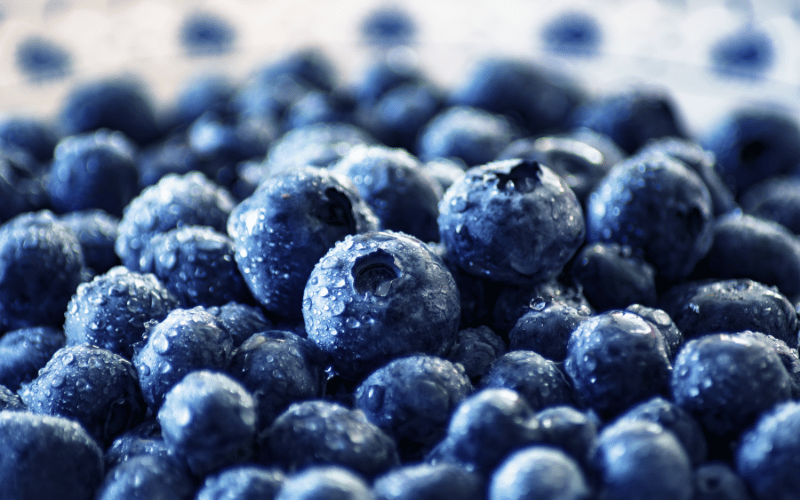2. Blueberries: A Berry Good Choice for Low-Potassium Diets
Next on our list of low-potassium foods are blueberries. These little powerhouses are teeming with antioxidants, making them a great choice for those looking to add a punch of nutrition to their low-potassium diet.
Blueberries, like apples, have a lower potassium content, with about 114 milligrams in a cup of these tiny berries. This makes them an excellent choice for those looking to limit their potassium intake. However, don’t let their small size fool you. These berries are brimming with other nutrients that make them a worthy addition to your diet.
One of the main reasons to include blueberries in your diet is their high antioxidant content. Antioxidants are crucial for your health as they help combat harmful free radicals in the body. These unstable molecules can cause damage to your cells, leading to chronic diseases such as cancer and heart disease. Blueberries, however, are rich in a type of antioxidant known as anthocyanins, which give them their characteristic blue color and help to combat these harmful molecules.
The beauty of blueberries lies not only in their nutritional profile but also in their versatility. They are a fantastic addition to various meals, from breakfast cereals to salads to desserts. You can even incorporate them into savory dishes, like sauces for meats, for a tangy twist. This makes them an easy addition to a low-potassium diet, offering variety and versatility.
As with any food on a low-potassium diet, moderation is key. While blueberries are a fantastic choice, they should still be consumed in a balanced manner, alongside a variety of other low-potassium foods.(*)
